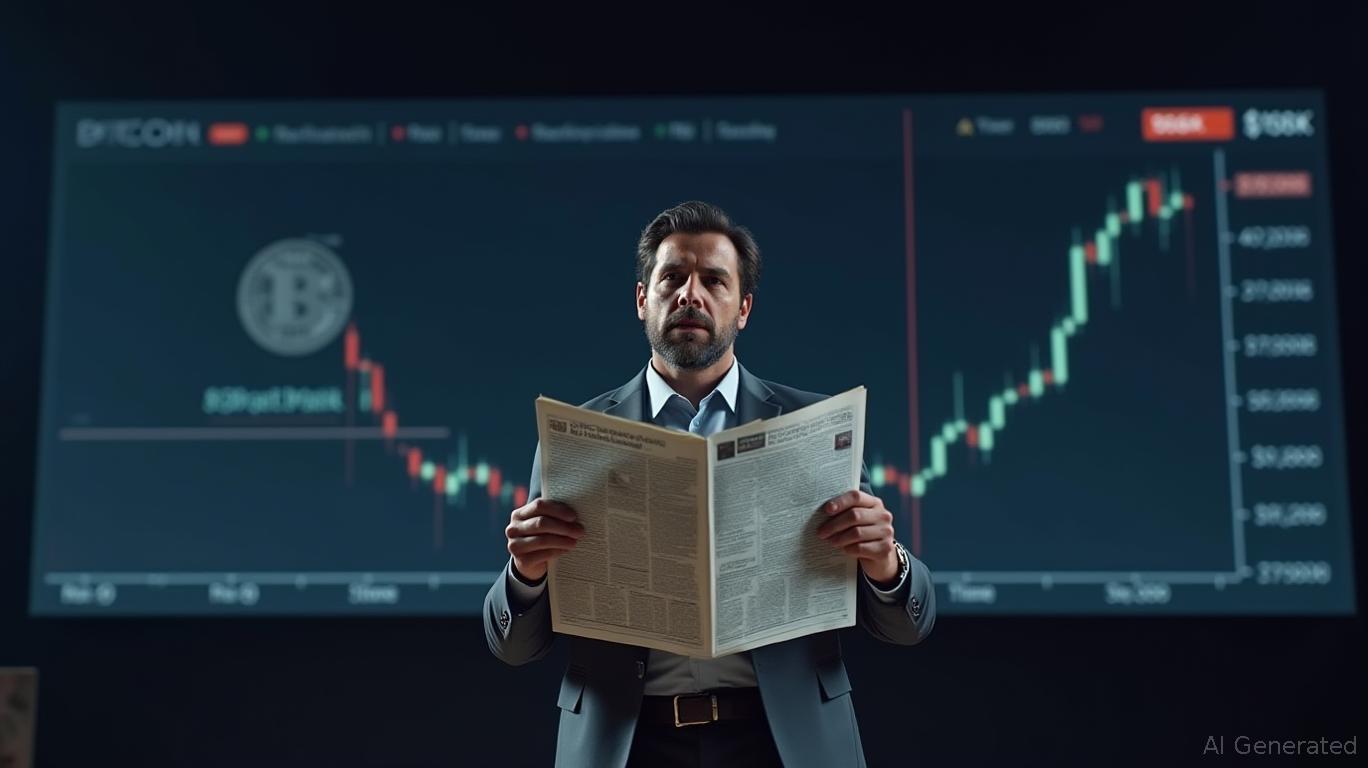Pfizer Files Lawsuit Against Novo: Alleges Competitor Engaged in Antitrust Scheme to Dominate Obesity Market
- Pfizer sues Novo Nordisk and Metsera in Delaware courts, alleging anticompetitive tactics to block its $7.2B obesity drug acquisition. - Novo's $8.5B superior bid for Metsera's GLP-1 pipeline—valued at $5B peak sales—triggers legal claims over regulatory bypass and contract violations. - Pfizer leverages early FTC approval for its deal, seeking court orders to force a November 13 shareholder vote amid patent expiration threats. - The dispute highlights $150B obesity market stakes, with Novo defending its
Pfizer Inc. (PFE) has intensified its legal efforts to maintain its stake in the obesity-focused biotech company
The dispute revolves around Metsera’s pipeline of experimental GLP-1 treatments, which feature a once-monthly injectable that has demonstrated an average 14% weight reduction in clinical trials, as well as a chemically stabilized oral version. Analysts estimate these products could achieve peak annual sales of $5 billion, according to

Pfizer’s legal argument is based on its regulatory advantage: the FTC ended its Hart-Scott-Rodino review early on October 31, ahead of the November 7 deadline, as noted by
This legal showdown highlights the growing rivalry in the obesity medication industry, which analysts expect to reach $150 billion in value by 2030. Novo, facing increased competition from Eli Lilly’s tirzepatide, is working to strengthen its drug portfolio before semaglutide patents expire. Meanwhile, Pfizer is attempting to gain entry into the sector after discontinuing its oral obesity drug candidate, danuglipron, as reported by
Metsera’s investors, led by Population Health Partners and ARCH Venture Partners, are under investigation for possible collusion with Novo, according to
With Pfizer facing a November 5 deadline to respond to Novo’s proposal and a shareholder vote approaching, Delaware courts are poised to decide whether competitive issues or contractual commitments will take precedence in this major pharmaceutical dispute.
Disclaimer: The content of this article solely reflects the author's opinion and does not represent the platform in any capacity. This article is not intended to serve as a reference for making investment decisions.
You may also like
WhatsApp Introduces Wrist-Based Messaging: Meta's Strategy to Broaden Its Ecosystem
- Meta launches WhatsApp standalone Apple Watch app for Series 4+ devices, enabling wrist-based messaging, calls, and media previews without iPhone dependency. - The app retains end-to-end encryption and introduces voice messages, emoji reactions, while signaling Meta's shift from Messenger to consolidate messaging under WhatsApp. - By expanding cross-device integration, WhatsApp gains a new engagement touchpoint for its 3B+ users, aligning with Meta's monetization strategies through ads and channel subscr

SUI News Today: Perpetual DEXs See $1.2 Trillion Boom, But Underlying Issues Remain in Crypto Derivatives Competition
- Perp DEX trading volumes hit $1.2T in Oct 2025, driven by incentive programs and market liquidations. - Lighter (27% share) and BNB-backed Aster led growth, while Hyperliquid's share dropped to 10% despite strong fundamentals. - Sui blockchain's HyperSui raised $2M, signaling potential to boost DeFi TVL to $3B and drive SUI price to $11.20. - Analysts warn of structural challenges despite short-term growth, with volumes expected to stabilize unless new liquidation events occur.

Bitcoin Updates Today: Will Bitcoin Maintain $106K? November Support Level May Trigger Sustained Buying
- Bitcoin fell 3.4% in October amid geopolitical tensions and Trump's China tariffs, triggering $19B in liquidations despite a late 24-hour 0.54% rebound. - Institutional caution grew as Hargreaves Lansdown warned against Bitcoin's volatility, while Prenetics and Steak 'n Shake expanded crypto holdings and promotions. - Technical analysis highlights $106,600 as a critical support level, with a break potentially pushing prices toward $98,000–$100,000 for long-term buying opportunities. - November's trajecto

YFI Drops 5.18% Over 24 Hours as Long-Term Indicators Show Continued Downtrend
- YFI fell 5.18% in 24 hours, 6.64% in 7 days, and 46.1% annually, signaling prolonged bearish pressure and weak buyer interest. - Technical indicators suggest continued downside risk, with key support levels likely to be tested as consolidation extends. - A backtest hypothesis proposes shorting YFI after 10% declines, evaluating profitability through historical data from 2022-2025.